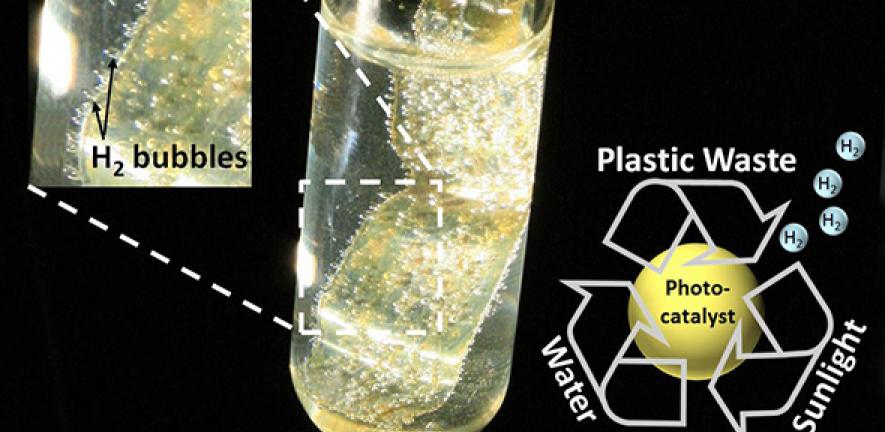
In a new government campaign to combat the effects plastic waste has on our environment, eight projects will receive a total of £8 million from the Plastics Research Innovation Fund (PRIF).
The funding will support researchers as they investigate alternatives to fossil-based materials for plastics, look into the complex factors involved in the life cycle of plastic materials (including the behaviours of businesses and consumers), and investigate ways of using technology to reclaim or break down plastics.
The government has identified producing less carbon intensive products, including plastics, as a key challenge area alongside reducing plastic waste. This will lead to a circular economy where greater emphasis is placed on 'use, reuse and recycle'. In one of the projects announced today, Professor Erwin Reisner will lead research on 'Circular Economy Approaches to Eliminate Plastic Waste'.
He and his colleagues recently demonstrated a new process using sunlight, water and a precious-metal-free photocatalyst to convert waste plastic into a renewable fuel source. Erwin says: "Waste plastic contains a large amount of stored energy that is currently being thrown away. Our work shows that we can use plentiful resources like waste plastics and sunlight to create hydrogen fuel and organic chemicals in a sustainable way."
The project on eliminating plastic waste will have the following core objectives:
- Sustainable feedstocks and materials as cleaner and more recyclable plastic alternatives
- Models for understanding plastic flows through the UK economy, society and environment to improve the recovery of plastics
- Service design methodologies to influence business behaviour
- Innovate recycling approaches to recover the high energy-content of waste plastics by producing electricity with microbes and chemical fuels using sunlight
This is a multidisciplinary research initiative. In addition to the Department of Chemistry, it will also involve the departments of Zoology, Physics, Engineering, Biochemistry, Materials Sciences and Metallurgy, Chemical Engineering and Biotechnology, the Judge Business School, and Asian and Middle Eastern Studies. It will also be supported by Energy@Cambridge, a University-wide programme that links the activities of over 250 academics working in energy research.
Announcing the new projects on Tuesday 18 December, Science Minister Chris Skidmore said: "We have all seen the devastating effects that plastics waste has on our environment, threatening the biodiversity of our oceans and introducing micro-plastics into the food chain.
"We are committed to tackling this problem, from developing a plastic-eating bacteria to finding new ways to recycle. These projects have the potential to lead us to a cleaner, greener economy but also ensure the UK is at the forefront of the latest innovations and products that will be in high demand across the world through our modern Industrial Strategy."
- The Plastics Research Innovation Fund support is delivered via the Engineering and Physical Sciences Research Council (EPSRC), Innovate UK, with strategic oversight from Professor Duncan Wingham, Executive Chair of the Natural Environment Research Council (NERC).

